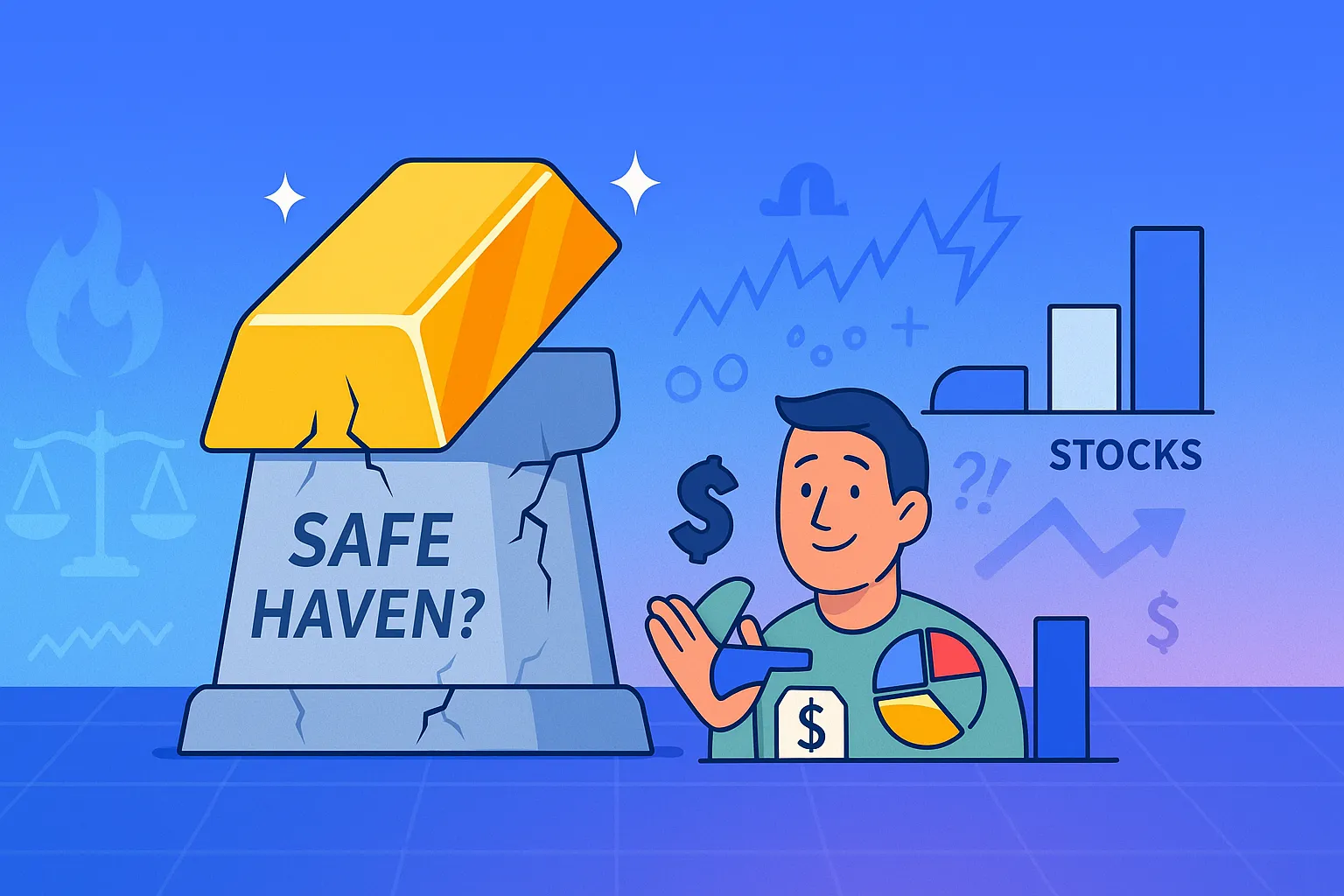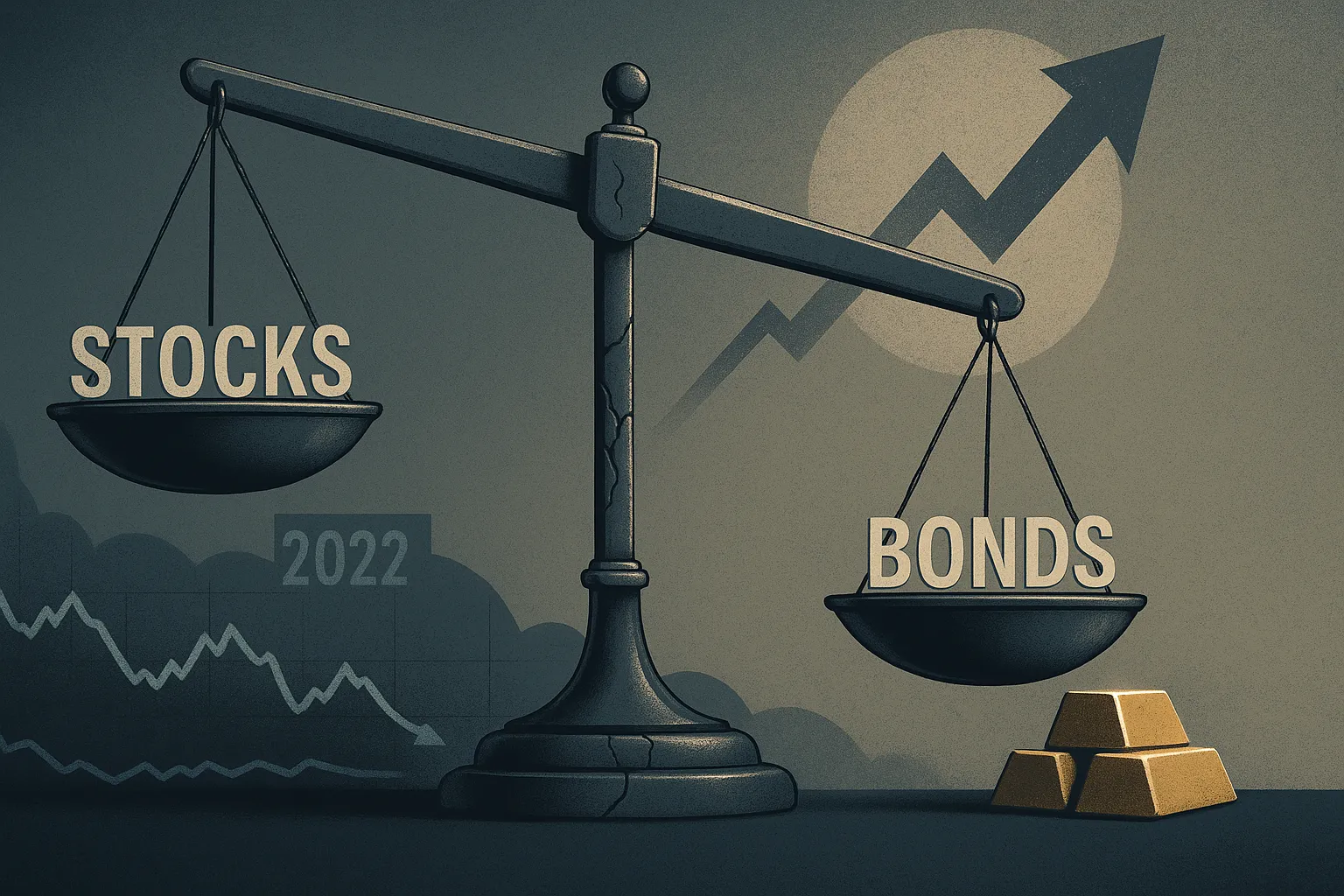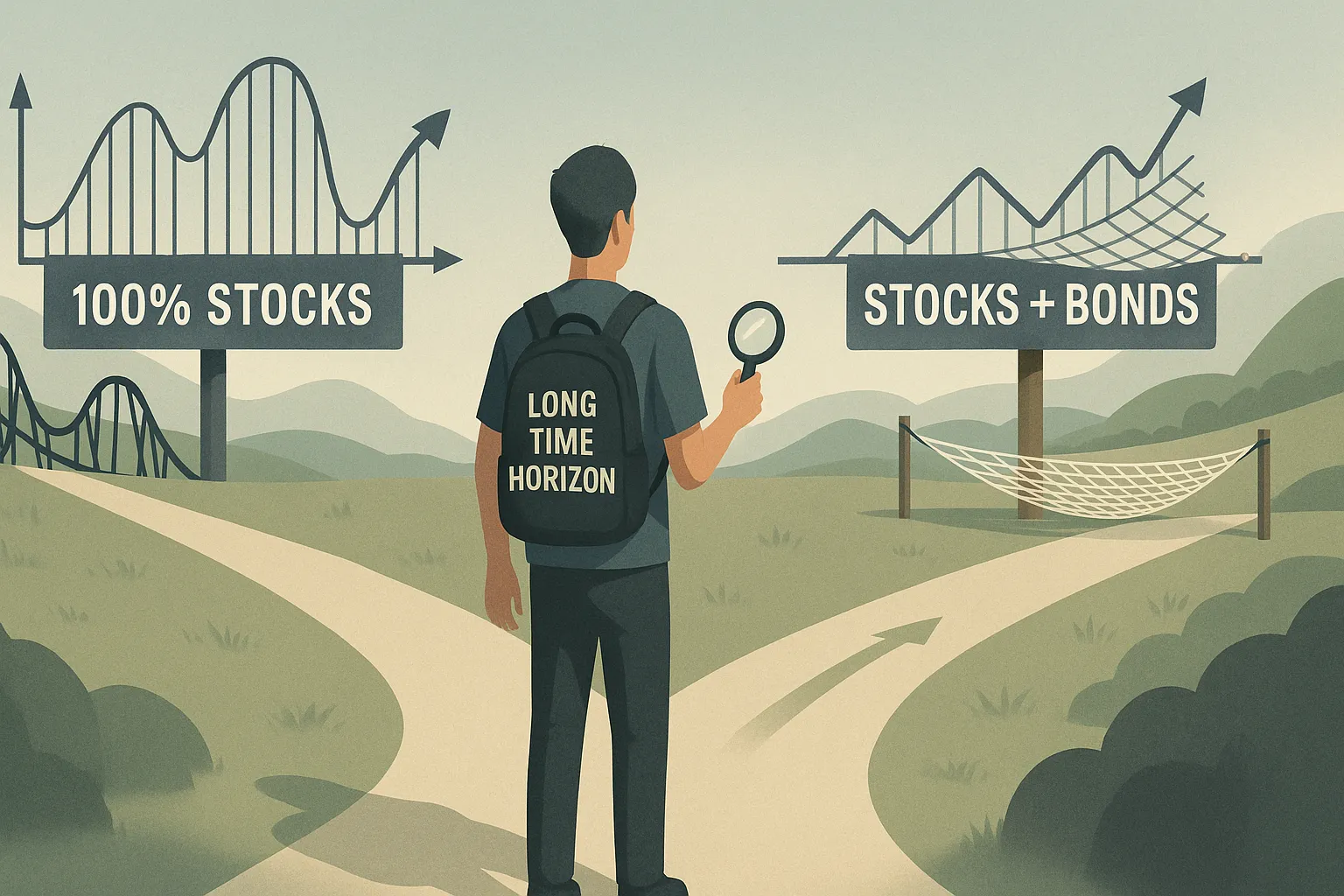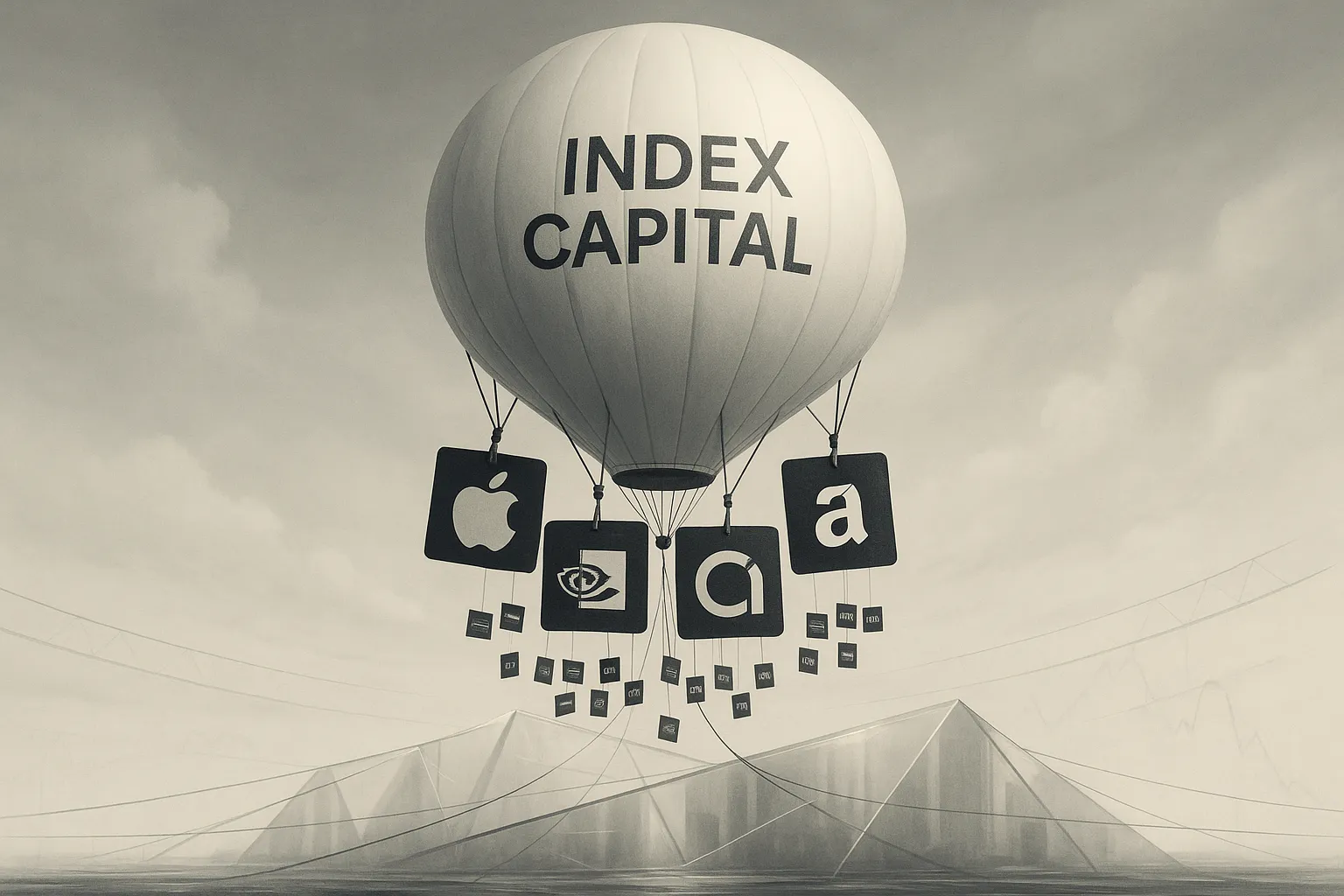Gold Can be a Terrible Investment – Here’s Why
Unlike stocks, gold produces no income and often underperforms long term. Know when (and why) to use it—if at all.

This content has been reviewed and edited by an Investment Advisor Representative working for Global Predictions, an SEC-registered Investment Advisor.
Gold often gets pitched as the ultimate safe-haven asset. When markets tumble, headlines scream, “Buy gold!” It’s been called a hedge against inflation, a store of value, and even “real money.”
But here’s the uncomfortable truth: gold has some serious downsides as an investment. Over the last 40 years, its performance trails equities, it produces no income, and in many cases, it adds little value to a diversified portfolio.
That doesn’t mean gold is worthless—but it’s not the bulletproof investment many believe it is. Let’s break down what gold really offers, where it falls short, and when it might actually make sense to invest in.
Key Takeaways
- Gold’s long-term returns have lagged significantly behind stocks.
- It produces no income—no dividends, no yield.
- It can be highly volatile in the short term.
- Gold may serve as a hedge in specific scenarios, but it’s not a growth asset.
Gold’s Track Record: Underwhelming Over Time
If you had invested $10,000 in gold at its 1980 peak—when it traded around $634/oz—you’d have about 15.77 ounces. By early 2024, with gold at approximately $2,066/oz, that investment would be worth around $32,580—a 3.3x return over 44 years.
Now compare that to the S&P 500: the same $10,000 invested in 1980 would be worth over $1.6 million today—with dividends reinvested. That’s more than 100x growth.
The point?
Gold might preserve purchasing power in certain inflationary environments, but it’s a poor vehicle for building wealth over time.
Gold Doesn’t Produce Anything
When you buy a stock, you’re buying ownership in a company that (hopefully) earns profits, pays dividends, and grows over time.
Gold? It just sits there. It doesn’t earn interest. It doesn’t produce goods. It doesn’t innovate or expand.
This means your only hope of profit is that someone else is willing to pay more for it later. That’s speculation—not investment.
It’s Not Always a Great Hedge
Gold is marketed as a hedge against inflation and economic chaos. Sometimes that’s true—but not always.
Example: During the 2008 financial crisis, gold did rise while equities fell. But in 2022, when inflation surged and stocks and bonds tumbled, gold barely moved.
Why? Because gold’s performance depends on a complex mix of:
- Interest rates
- Currency movements
- Real yields
- Investor sentiment
It’s not a guaranteed shield. It’s a tool with limitations.
Volatility Can Cut Both Ways
People think gold is “safe.” But it can swing hard:
That’s a major drawdown for something marketed as “stable”.
Gold can whipsaw based on central bank moves, geopolitical shifts, or even sudden shifts in investor sentiment. That’s not exactly comforting if you’re looking for peace of mind.
When Gold Does Make Sense
Let’s be fair: gold isn’t useless.
It may have a role in a few scenarios:
Portfolio Diversification
- Gold is often uncorrelated with stocks and bonds, so a small allocation (often recommended at 5-10%) might reduce overall portfolio volatility.
Tail Risk Protection
- If you’re worried about currency collapse, geopolitical crisis, or financial system failure, gold may act as a store of value in the craziest of situations.
Tactical Positioning
- Some traders use gold based on macro signals—like falling real interest rates or rising geopolitical tensions.
Just know what you’re getting into—and why.
What to Consider Before Buying Gold
Before you jump in:
- Storage and Insurance: Physical gold comes with added costs.
- Liquidity: Coins and bars can be harder to sell quickly.
- Taxes: Gold is taxed as a collectible in the U.S.—up to 28% on gains.
- No Income: Holding gold long-term means no cash flow while you wait.
Also: avoid gold funds that charge high expense ratios for simply tracking the metal commodity.
FAQ
1. Is gold a good long-term investment?
Not historically. Over the decades, stocks have significantly outperformed gold in both growth and income.
2. Should I own physical gold or ETFs?
ETFs offer better liquidity and lower costs. Physical gold comes with storage and insurance concerns.
3. Does gold protect against inflation?
Sometimes—but not always. In some inflationary periods, gold has been flat or even declined.
4. Is gold safe?
It’s not risk-free. Gold can be volatile and depends on both market psychology and fundamentals.
How optimized is your portfolio?
PortfolioPilot is used by over 30,000 individuals in the US & Canada to analyze their portfolios of over $30 billion1. Discover your portfolio score now:





